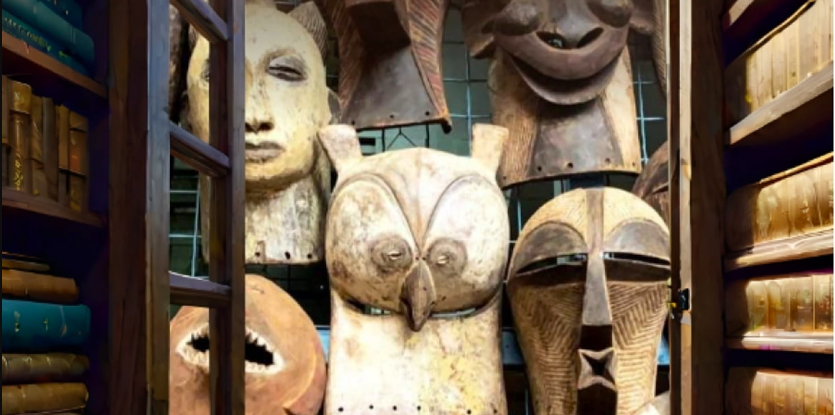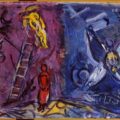A collection of recollections: on Joshua Omeke’s Joe’s Collectanea

As much as we try to run away from Wordsworth’s definition of poetry as the “spontaneous overflow of powerful feelings and emotions recollected in tranquillity,” we keep returning to it as we encounter and contemplate modern poetry. Emotion, feeling, private thought, introspection and the like are still the playgrounds and handmaidens of poetry.
Joshua Omeke’s Joe’s Collectanea contends with this classical conception of poetry in its unabashed declarative title, a Latinate derivation which simply refers to “a poet’s collection of literary writings, forming a collection.” Omeke, instead of choosing an outlandish title, uses an abridged form of an eponymous poem within the collection (“Joe’s Collectanea from Ghana Side”). As it is often the case with poetry collections today, the title simply announces “these are my poems in a collection.” Beyond the title, the cover design of the collection—a coterie of ancient-looking wooden masks on a shelf wedged in on either side by antique and baroque-looking books on shelves—anticipates an adventure into (or a deconstruction of) some kind of exotica.
Omeke’s collection comprises thirty-one poems of varying lengths and forms, ranging from those that dwell on the ecosystem, the life of the immigrant, life and love, to the health of body and mind, religiosity, pan-African historical and social interface, and a kind of Africanized science-fiction.
The collection opens with a poem of eco-critical concern entitled “Danilo the Farm Boy”, in which the poet paints a picture of a diligent farm boy working in an organized and mechanized farm. Such industrial agriculture is rarely the case in Omeke’s local African environment, though the lines run with some familiar idioms such as “No Food for a lazy man, so I work on this farm”. Other poems in the collection, such as “Ache of Waters” and “Roots are Before the Logs”, relate the fate of those natural bodies in the ravaging grip of the modern world to that of man.
Immigration, emigration, migration, and issues concerning the diaspora have become the trending or enchanting subjects of African literature, and particularly poetry, in recent decades. These have so much dominated our poetry in content and form that, in the 2022 Nigeria Prize for Literature award for poetry, the three shortlisted poets and the eventual winner were all young Nigerian poets from the diaspora, who wrote poems informed by the exilic diasporan ambience, the stylistic requirements of diasporic writing, or their subjectivized displacement.
Joshua Omeke may be seen in that light too, having lived, schooled or worked in the diaspora. In “Coloured Dream”, the immigrant’s apparent wish for success in a foreign land comes through in prayerful, anthemic lines such as: “In the land of people that persecuted my ancestors / Here I am seeking greener pastures / Believing I would someday be favoured / Manured from the knowledge of life”. And in the poem “Flies of Wilderness,” the resilience of the immigrant is celebrated in a series of rhyming couplet “In lands unknown, they forge a path anew / leaving behind what once they knew…. / Flies of wilderness, with wings of grace / Witness the struggles they daily face.”
From an experiential perspective, and from general reading of contemporary poetry, it seems that poems that try to be definitive or topical have to be stylistically or metaphorically alert to rise above rhetorical platitudes, which weaken the flavour of poetry. The poet must, as Pound demanded, make it new. Some few poems in the collection such as “Long Lost Love”, “Composure,” “Daily Dose of a Mother’s Influence,” “My Body, My Mind,” “Portrait of Her Lifestyle” and “Life” are not fully able to break away from the gravity of their subjects. They are riddled with prosaic presentation and dotted with a few clichés. Same goes for poems with religious denotations and connotations in the collection—such as “Angel’s Watch”, “Epiphany of Life” and “Surrendered Man.”
Religion itself comes with its own fixed register, words drawn through the ages, so loaded with history and culture that they may not allow a poet any striking originality of metaphors, moods, and feelings. To tackle religious subjects successfully in poetry, a kind of subversion is necessary. One must refuse to bear the weight of the language itself, even as it is repurposed for the poem.
The few poems that directly address love, life, and emotion in the collection—such as “Romance in Poetry”, “Long Lost Love,” “Problem,” “Ramshackle Emote” and “Emotions and Idioms”—reveal no such shortcomings. They are couched in captivating allusions to Greco-Roman mythology, deceptive gods and indulgent goddesses, classical musical prodigies and popular paintings in experimental styles. These poems are enigmatic and densely layered. One needs a widely-read mind to decode them, or a mind open enough to experience them without a cypher.
The collection is at its most lyrical in the places where the poet engages in the de-familiarisation of the familiar, such as in the poem “The Grass of Our Time”, in which the harmful effect of tobacco smoking and its addiction are explicated: “Äs I drag life out of you, you bring life into me… / Africans say one thing must kill a man / Hence I say to you my beloved stick / If I perish, let it be from the highness of your touch.” This lyricism is best showcased in the long narrative poems of the collection, in which the poet delves into historical reconstruction (“Anarchiste Diplomatique”), interrogating inter-racial relationships (“A Friend of Mine”), romanticising rebellion and daredevilry (“The Great Sail of Scandinavian Pirates”), dramatising immersion into another African culture (“Joe’s Collectanea from Ghana Side”) or reflecting on paranormal and transcendental experiences. These last are almost in the mode of an Africanised science-fiction (“Pies from Celestial Beings,” “The Jinn of Sahara,” and “Tommy, My Watch”).
In his narrative poems, Omeke is at his lyrical best. He excels in wordplay and dramatic expressions, and masterfully deploys stanzaic refrains to add a kind of rhythm to the general feel of each poem. In “Anarchiste Diplomatique,” for example, which engages the confounding history of Nigeria from the pre-colonial time to the present, there is a recurring stanza that acts more like a chorus:
So this is slavery Our dreams may be as high as Elroy in the spaceship But this politics is killing it
Likewise, in the poem “A Friend of Mine,” which explores tensions in an inter-racial relationship, the following refrains are repeated:
And now, this is for a friend of mine, One who is afraid to introduce me to her mother, And the other who is ashamed to invite me to a time out with his father, This is the way I was designed, And, naturally, we embrace each other in life.
And in “The Jinn of Sahara”, which connects history and landscape to paranormal beings and occurrences, is this refrain:
I’m the jinn, I am real, You may avoid this truth, but we’re here, not to kill, Just relax and feel our mild
In the semi-eponymous poem, “Joe’s Collectanea from Ghana Side”, a reader will find the poet’s ars poetica, a statement about what Omeke thinks should be the preoccupation of poetry and the poet. Nearly every poet does this in their debut collection, a defense of sorts, or perhaps an apology. This poem uses a setting that is different from, but similar enough to, the poet’s own natal origin. The poet converses with an older woman and the dramatic situation inspires reflection:
C’mon Joe, you are more creative than writing about the unexpected
occasions you encountered during the day,
What about romance?
Feel the need to tell the world about your first love?
You could be the next Shakespeare if you just try not to give up,
Or how about you tell them of your dreams, allow them to see the way you think,
This is your collectanea; it is about you.
Here we return once more to the “spontaneous overflow of powerful feelings and emotions recollected in tranquillity,” now dramatized within the poem just as it is simultaneously embodied by the poem. It also successfully sums up the beauty, the multiplicity of concerns, styles, perspectives, frailties, preoccupations, and artistry of Joshua Omeke Joe’s Collectanea.
About Denja Abdullahi
Denja Abdullahi is a poet, playwright, culture expert, and former President of the Association of Nigerian Authors (ANA).





